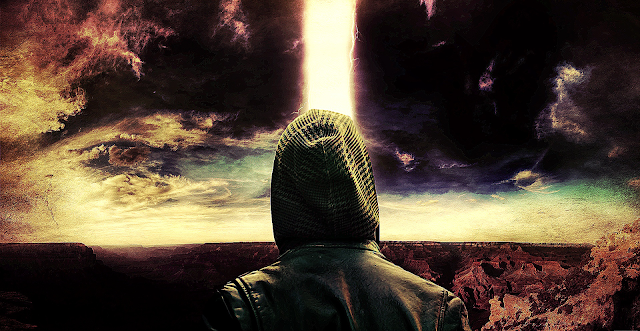Red versus Blue, Bloodshed or Truth
"Political conflict rests to a very large extent on a universal ignorance of consequences, as the people are benefited by any particular act or policy are rarely those who struggled for it, and the people who are injured are rarely those who opposed it." - Kenneth E. Boulding
In a political landscape known for its conflicting ideologies, it is difficult not to give into dogmatism and group think. The human ego craves for external validation, willing to go to great lengths to prove the validity of its own worldviews, usually at the expense of others. Obviously, this refers to anyone who is seen as a supporter of the opposing side of the political spectrum, whether true or otherwise. One of the established norms around the idea of adulthood is the shift from the “irrational” emotion-based paradigm to the more “rational”, empirical worldview.
Unfortunately, this dualistic concept creates needless hostility around issues that require much deeper analysis and nuance than any single political party has to offer.
 Take, for example, the debate surrounding the Parkland shooting and March for Our Lives. There is the more left-wing stance of tighter gun control legislation being the only viable option in preventing more school shootings from happening.
Take, for example, the debate surrounding the Parkland shooting and March for Our Lives. There is the more left-wing stance of tighter gun control legislation being the only viable option in preventing more school shootings from happening.
From the conservative side, however, legislation is seen as a quick fix designed with the intention of taking away citizens’ right to self-protection and freedom from tyrannical government, namely the second amendment.
Like all political debates, it seems as though supportive evidence is enough to garner public approval...in an ideal world. Both sides often get criticized for using emotional, ad-hominem attacks against one another, thus leading to the notion that emotions run counter to meaningful discourse. Yet, is this truly the case?
Since this discussion is also relevant to schools and education, hence the example of the school shooting, we must also consider how this duality has influenced the knowledge being taught in these institutions. With an increasingly fast-paced society, practical knowledge is undoubtedly an essential tool. However, like all tools that we use, education can be misused by the human ego. What does the ego love to do? Construct a social identity that is based on its standing with respect to “the other”.
The saying “Guns don’t kill people, people kill people” is quite relevant in this case, as education is being used to create a more partisan, divided society, an agenda furthered by the media on both sides.
Education, by nature, is administered through teachers that promote a set of personal values. While it is easy to blame such external factors in times of conflict, trying to cultivate an awareness of our own assumptions and judgements is perhaps a more effective solution towards political progress. When we blame the shooter for lacking basic human empathy, we despise the needless bloodshed that has occurred, yet our anger fuels the ego’s need for superiority. When we denounce the opposition as being ill-informed, we take pride in the strength and clarity of our arguments, all the while discarding the multitude of perspectives that have lead to every single policy that has been created to this date. From all this, we find that it is not the use of emotion that inhibits rational thought.
Rather, it is misplaced emotion that prevents us from understanding, the one emotion behind all societal progress.
Of course, understanding does not mean blind tolerance. It does, however, allow us to accept the complexity of deriving truth and to embrace the vastness of human perspective. Some might point the finger at the politicians running the oval office. Some might call the younger generation out on their abusive treatment of one another. Others may find such claims to be nothing more than vague, empty promises. If we point to ourselves for once, we discover that these arguments are but pieces of a never-ending puzzle towards the truth.
We must allow ourselves to feel gratitude for these perspectives.
We must uncover our own self-identity and realize how the flaws we see in others are present within us, only differentiated by the beliefs we uphold.
If we look past the desire to be the sole proponents of truth, society will have no choice but to go beyond such dichotomies.
Only then can we pursue truth without ego.
"Kids Are NOT Moral Authorities!" Ben Shapiro REACTS to the National School Walkout
https://www.youtube.com/watch?v=mKLgwCUNzHE
"I'm Really Trying to Control My Anger" Conservative Parkland Student DEFENDS the 2nd Amendment
https://www.youtube.com/watch?v=UvDlXZvorLI
Brave Student Angelica Mansfield Stands Up and Confronts Classmates During Gun Control Walkout
https://www.youtube.com/watch?v=wgFSWbRPAzk




Comments
Post a Comment